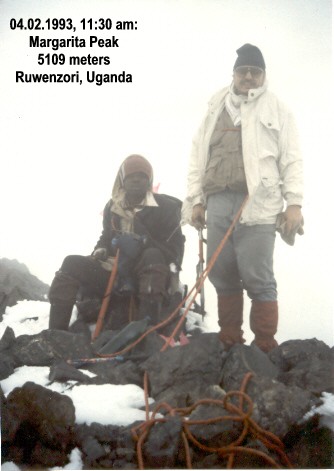U.S. Jobs Shape Condoms’ Role in Foreign Aid
October 29, 2006
By CELIA W. DUGGER
(URL/Link)
EUFAULA, Alabama Here in this courtly, antebellum town, Alabama’s condom production has survived an onslaught of Asian competition, thanks to the patronage of straitlaced congressmen from this Bible Belt state.
Behind the scenes, the politicians have ensured that companies in Alabama won federal contracts to make billions of condoms over the years for AIDS prevention and family planning programs overseas, though Asian factories could do the job at less than half the cost.
In recent years, the state’s condom manufacturers fell hundreds of millions of condoms behind on orders, and the federal aid agency began buying them from Asia. The use of Asian-made condoms has contributed to layoffs that are coming next month.
But Senator Jeff Sessions, Republican of Alabama, has quietly pressed to maintain the unqualified priority for American-made condoms and is likely to prevail if the past is any guide.
“What’s wrong with helping the American worker at the same time we are helping people around the world?” asked the senator’s spokesman, Michael Brumas.
That question goes to the heart of an intensifying debate among wealthy nations about to what degree foreign aid is about saving jobs at home or lives abroad.
Britain, Ireland and Norway have all sought to make aid more cost effective by opening contracts in their programs to fight global poverty to international competition. The United States, meanwhile, continues to restrict bidding on billions of dollars worth of business to companies operating in America, and not just those that make condoms.
The wheat to feed the starving must be grown in United States and shipped to Africa, enriching agribusiness giants like Archer Daniels Midland and Cargill. The American consulting firms that carry out antipoverty programs abroad dubbed beltway bandits by critics do work that some advocates say local groups in developing countries could often manage at far less cost.
The history of the federal government’s condom purchases embodies the tradeoffs that characterize foreign aid American-style. Alabama’s congressmen have long preserved several hundred factory jobs here by insisting that the United States Agency for International Development buy condoms made here, though, probably in a nod to their conservative constituencies, most have typically done so discreetly.
Those who favor tying aid to domestic interests say that it not only preserves jobs and supports American companies, but helps ensure broad political support for foreign aid, which is not always popular.
On the other hand, skepticism of foreign aid is frequently rooted in the perception that the money is not well spent. Blame often falls on corrupt leaders in poor countries, but aid from rich nations with restrictions requiring it to be spent in the donor country can also reduce effectiveness.
The United States government, the world’s largest donor of condoms, has bought more than nine billion condoms over the past two decades. Under President Bush’s global AIDS plan, which dedicates billions of dollars to fight the epidemic, a third of the money for prevention must go to promoting abstinence. But that leaves two-thirds for other programs, so the federal government’s distribution of condoms has risen, to over 400 million a year.
Over the years, Usaid could have afforded even more condoms among the most effective methods for slowing the spread of AIDS if it had it bought them from the lowest bidders on the world market, as have the United Nations Population Fund and many other donors.
Randall L. Tobias, who heads Usaid, declined through a spokesman to be interviewed on this topic. His predecessor, Andrew Natsios, sought to weaken the hold of what he sometimes called a cartel of domestic interest groups over foreign aid. He tried, for example, to persuade Congress to allow the purchase of some African food to feed Africa’s hungry. Congress killed that proposal last year and again this year.
Hilary Benn, Britain’s secretary of state for international development, said in an interview that in 2001 his country untied its aid from requirements that only British firms could bid for international antipoverty work.
“If you untie aid, it’s 100 percent clear you’re giving aid to reduce poverty and not to benefit your own country’s commercial interests,” he said.
In recent years, most of the low-end condom business has moved to Asia, including Australia-based Ansell, which used to have plants in Alabama. American makers cannot compete with Asia on price unless they have the federal contract.
The last American factory making condoms for Usaid sits anonymously in a pine-shaded industrial park here in Eufaula. Inside a modern, low-slung building owned by Alatech Healthcare, ingenious contraptions almost as long as a football field repeatedly dip 16,000 phallic-shaped bulbs into vats of latex, with the capacity to turn out a billion condoms a year.
The equation of need is never straightforward. Africa’s need to forestall its slow-motion catastrophe of AIDS deaths is vast. But there is need here, too.
Most of the 260 people employed at this factory and the company’s packaging plant in Slocomb are women, some the children of sharecroppers and textile factory workers, many of them struggling to support families on $7 to $8 an hour.
The most vulnerable among them single mothers and older women with scant education are the most fearful of foreign competition. All feel the looming threat.
“It’s cheaper, yeah,” said Lisa Jackson, 42, a worker in the packaging plant. “But we Americans should have first choice. We need our jobs to stay in America. We got to feed our families. I just wish it had never come to sending manufacturing jobs overseas.”
From 2003 to 2005, Alatech and one other company making condoms for Usaid fell behind on their orders, agency officials said. Last year, the other company went bankrupt. So Usaid ordered condoms from Asia, the first of which were shipped last year. With only a single American company still in line for the federal contract, agency officials are wary of ruling out Asian suppliers.
At such moments in the past, Alabama’s politicians have come to the rescue of the state’s condom industry. This time was no exception.
Senator Richard C. Shelby, a Republican on the Appropriations Committee, had a provision tucked into the 2004 budget bill requiring that Usaid buy only American-made condoms to the extent possible, given cost and availability. His spokeswoman, Kate Boyd, said the agency did not tell him it was worried about the relative cost of American and Asian-made condoms.
Senator Sessions wrote Usaid a letter last year saying it should purchase condoms from foreign producers only after it had bought all the condoms American companies could make, noting it was “extremely important to jobs in my state.”
Usaid assured the senator in writing that it “remains committed to prioritizing domestic suppliers.”
On the strength of that, Alatech bought the more modern Eufaula plant from its bankrupt rival. Without the government contract, the company’s president, Larry Povlacs, said, Alatech would go out of business.
In interviews, agency officials were noncommittal about whether they would halt all purchases in Asia. Condoms made there cost around 2 cents each, opposed to about 5 cents for those made here.
“At the end of the day, it’s all a political process,” Bob Lester, who recently retired after 31 years as a lawyer at Usaid, said of such decisions. “The foreign aid program has very few rabbis. Why make enemies when you don’t have to?”
Duff Gillespie, a retired senior Usaid official who is now a professor at the Johns Hopkins School of Public Health, said that over the years officials at Usaid raised the prospect of foreign competition to tamp down what he called “the greed factor” of Alabama condom manufacturers.
But whenever the staff pushed to buy in Asia, Alabama politicians pushed right back.
During the Reagan years, the offices of two Alabamans, Representative William Dickinson, a Republican, and Senator Howell Heflin, a Democrat, caught wind of one such move. Mike House, chief of staff to Senator Heflin, recalled being tipped off by Mr. Dickinson’s chief of staff.
“He says, ‘Well, A.I.D. is going to buy condoms from Korea,’ ” Mr. House recalled. “ ‘The reason is they can get three condoms for the price of one that they’re paying us.’ ” Mr. House said he asked in amazement, “You mean we’re making rubbers in Alabama?”
The congressmen’s staffs threatened to introduce amendments to require that condoms be made in America. The agency backed off.
Further attempts to open up bidding proved fruitless. Representative Jim McDermott, a Democrat from Washington State, had seen the devastation of AIDS firsthand in the 1980s as a State Department medical officer in Africa. But he said he could not break what he called the “stranglehold” of Alabama congressmen on the condom rules.
In the mid-to-late 1990s, Representative Sonny Callahan, a Republican from Alabama, served as chairman of the Appropriations subcommittee that shaped Usaid’s budget. Brian Atwood, who headed Usaid in those years, said no administrator “in his right mind” would have tried to cut Alabama out of the condom contract at a time when many Republicans were deeply hostile to foreign aid.
Then in 2001, after decades of negotiation, the United States and other wealthy donor nations reached a nonbinding agreement to open at least some foreign aid contracts to all qualified bidders. Included were those for commodities bound for the world’s poorest nations.
Usaid decided the agreement did not apply to condoms since some went to more advanced developing countries. Alabama’s manufacturers kept the condom business once again.
William Nicol, who heads the poverty reduction division of the Development Assistance Committee at the Organization for Economic Cooperation and Development, a group of economically advanced countries, scoffed at Usaid’s interpretation. “That’s rubbish,” he said in a telephone interview.
The condom companies’ inability in recent years to fulfill Usaid’s orders accomplished what the gentleman’s agreement did not: the entry of Asian competitors.
Usaid has asked Alatech to make 201 million condoms next year, less than half of this year’s order, and ordered another 100 million made in Korea and China.
Come Nov. 15, Alatech will lay off more than half its work force. Those jobs fell victim to Usaid’s smaller orders for condoms, foreign competition and automation.
The reactions of these workers ranged from philosophical to panicked.
One, Garry Appling, a 41-year-old single mother, has worked before as a $6-an-hour cashier at Krystal, the fast food restaurant, and another at $7.15 an hour in a chicken processing plant. She said her 10-year-old daughter, Anterria, worries that she will have to go back to the chicken plant, a place so cold and wet Ms. Appling often fell ill.
But even facing her own impending job loss, Ms. Appling took a moment to empathize with the women making condoms on the other side of the world.
“We need a job I guess they do, too,” she said, during a brief pause from feeding condoms into an intricate, rotating, whooshing machine that tested them for holes. “It’s sad.
“At the same time, the United States can’t just keep helping overseas. They’ve got to help us, too.”
Copyright 2006 The New York Times Company




Keine Kommentare:
Kommentar veröffentlichen